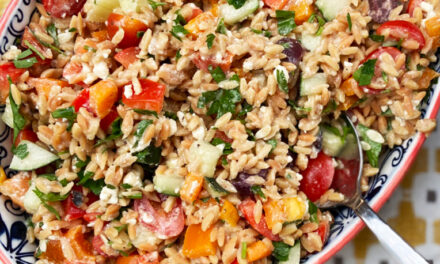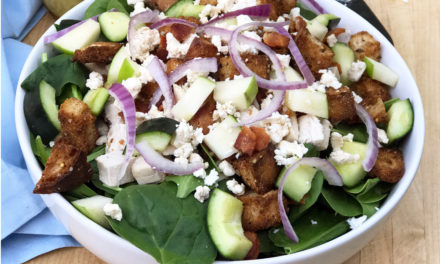Ever feel overwhelmed with how to make healthy food choices? You’re not alone! The average person makes over 200 food-related decisions per day. Because your brain is so busy, it tends to look for shortcuts to aid in decision-making. Food marketers know this and seek to help our brains take these mental beelines straight to the checkout line with their company’s product in hand.
Food marketers know that healthy eating is popular and use “health halos.” The health halo effect leads to the perception that a product is healthier than it actually is. The average consumer may falsely assume that since a product is healthy in one way (or based on a single claim) that it is healthy in all ways.
For example, when looking at packages of various food products, you may notice feeling better about purchasing foods wrapped in boxes labeled with:
- Health-related buzzwords: Fiber, Vegan, Vegetarian, Whole, Thin, Wheat
- Words that seem to assign moral values to the food: Guiltless, Halo, Good
- Small numbers: One, Zero, Free, No
- Terms related to the environment: Natural, Organic, Sustainable, Clean, Non-GMO
- Phrases stating a food has less [fill in the blank here] than the original version: Low, Light, Less
- A familiar company with a positive reputation
- Images easily correlated with health
With all of the options available and limited time to research all the options, it’s understandable to simply grab an item labeled with one of the above and move on.
Unfortunately, with health halos guiding your food choices, people can develop a tendency to:
- Overestimate the healthfulness of certain foods
- Choose foods based on the quantity they could eat instead of the overall quality of the food
- Underestimate the amount they are really eating, feeling they have a license to eat more of certain foods that are promoted as healthy in some way
French researcher Pierre Chandon, who has conducted research on health halos, states: “Too many Americans believe that…what you eat matters more than how much you eat. It’s the country where people are the best informed about food and enjoy it the least.”
To be clear, many food products with health halos are truly nutritious and delicious. It’s not about completely avoiding these products or adopting an all-or-none mindset with healthy eating. It is about being an educated, aware consumer with a solid, trustworthy, and scientific base of food knowledge. This foundation leads to better balance and self-regulation skills than what a food label could provide.
Don’t be duped by health halos…
1. Remember: Some of the products with the above claims in their names truly are nutritious choices. No need to steer clear of them completely.
2. Slow down. Don’t be too quick to judge.
3. Take a closer look at what a product actually is, not what it isn’t! Flip the package over and check out the ingredient list. How many ingredients are listed? Do you recognize each one? Remember ingredients are listed from most to least by weight.
4. Keep in mind that some of the most nutritious foods don’t come in fancy packaging!
5. Eat mindfully, letting hunger and fullness be your guides.
Blair Mize, MS, RDN, CSSD, LDN is co-owner of Memphis Nutrition Group, a nutrition & lifestyle counseling practice operated by registered & licensed dietitians/nutritionists. Memphis Nutrition Group believes in a non-diet approach that promotes overall health and optimal performance without compromising the enjoyment of food. For more information call Memphis Nutrition Group at 901.343.6146 or visit www.MemphisNutritionGroup.com.







